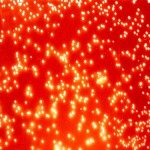Lien vers Pubmed [PMID] – 23350664
Helicobacter 2013 Aug;18(4):249-61
BACKGROUND: Helicobacter pylori is a major gastric bacterial pathogen, presumed to have established itself in the human stomach approximately 100,000 years ago. Helicobacter pylori co-evolved with its host, and human migrations shaped the expansion and the diversity of strains around the world. Here, we investigated the population structure and the genomic diversity of H. pylori in New Caledonia and Cambodia, where humans of different origins are living.
METHODS: Both multilocus sequence typing (MLST) and macro-array experiments were performed to assess polymorphism of housekeeping genes and to compare differences in gene contents among strains of H. pylori.
RESULTS: The macro-array analysis based on variations of the flexible gene pools was consistent with the contribution of ancestral H. pylori populations to modern strains. Most of the CDS variably present encode proteins of unknown function, selfish DNA, and transposases. In New Caledonia-where humans are of several ethnic origins-strains belonged to four different genetic populations, reflecting the diversity of human populations. Melanesians and Polynesians were infected mainly by strains assigned to hspMaori, whereas Caucasians were infected by hspWAfrica, hpEurope, and hpNEAfrica strains. In contrast, strains from Khmer patients belonged to only two subpopulations: hspEAsia and hpEurope. In the two countries, both ancient and recent human migrations may have influenced the diversity of H. pylori.
CONCLUSION: Our present results are consistent with the possibility of admixture of strains in multiethnic communities. This increases the global polymorphism of H. pylori without evidence of functional change or impact on fitness and virulence.


